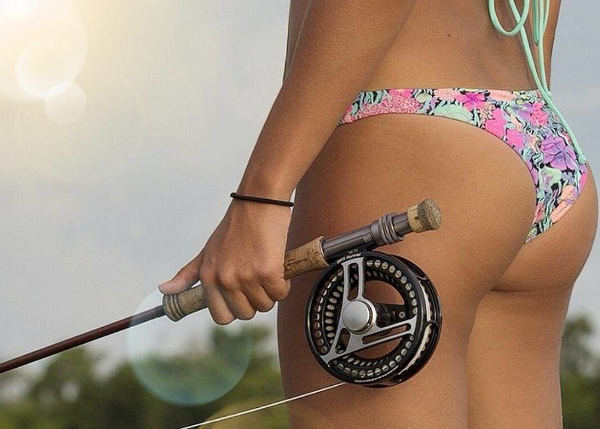RELATED: 6 Ways to Brush Up on Boater Safety
Construction
Most boats, especially those commonly used in freshwater, have a hull strength that was designed to be close to shore. Thus, most any boat can go into salty, ocean waters. Boaters, however, must be aware that rough waters and rocky shores can pose danger if the hull strength of your boat is not rated for such. I know what you’re thinking: people have made it from Cuba to the beaches of Florida in little more than a floating barrel. However, there’s no sense in taking your chances. If you do venture into ocean waters, stay near enough shore to avoid large waves, yet far enough away to not be washed into rocky cliffs. This is one of those situations where a good dose of common sense can have a major impact on how your day pans out.Cooling
Boats that are docked or moored in saltwater, or used long-term in saltwater settings, cooling systems may vary slightly. For example, saltwater boats often have closed cooling systems as well as flushing systems to help remove saltwater from settling in motors after use. However, for boats that will be spending a weekend in the bay, there’s no major concern about modifications for saltwater use.RELATED: 10 Safe Boating Tips for On the Water
Resale Value
Unfortunately, it seems that many boat buyers are under the impression that if a boat has been used in saltwater, it is instantly doomed to a life of rust and disrepair. However, boats that have taken occasional floats in saltwater, or even those moored in salty waters long-term can be in just as good, if not better, working condition than boats stored in fresh water. As with any piece of motorized fun, the key to maintaining resale value and longevity is in the maintenance of the vessel. By flushing out systems and washing boats after saltwater runs, boats will likely not suffer at all from the occasional saltwater trip. When the opportunity arises to try your boat out in some salty waters, consider leaving the lakeside behind and giving your vessel a float somewhere new. With smart boating practices and quality maintenance plans, you’ll be able to transition your boat from fresh to saltwater and enjoy all that boating has to offer.Hottest Women of Fishing
-
Hottest Women of Fishing

Photo credit: Facebook "Fishing Hotties"
-
Hottest Women of Fishing

Photo credit: Facebook "Fishing Hotties"
-
Hottest Women of Fishing

Photo credit: Facebook "Fishing Hotties"
-
Hottest Women of Fishing

Photo credit: Facebook "Fishing Hotties"
-
Hottest Women of Fishing

Photo credit: Facebook "Fishing Hotties"
-
Hottest Women of Fishing

Photo credit: Facebook "Fishing Hotties"
-
Hottest Women of Fishing

Photo credit: Facebook "Fishing Hotties"
-
Hottest Women of Fishing

Photo credit: Facebook "Fishing Hotties"
-
Hottest Women of Fishing

Photo credit: Facebook "Fishing Hotties"
-
Hottest Women of Fishing

Photo credit: Sport Fishing
-
Hottest Women of Fishing

Photo credit: Facebook "Fishing Hotties"
-
Hottest Women of Fishing

Photo credit: Facebook "Fishing Hotties"
-
Hottest Women of Fishing

Photo credit: Facebook "Fishing Hotties"
-
Hottest Women of Fishing

Photo credit: Facebook "Fishing Hotties"
-
Hottest Women of Fishing

Photo credit: Facebook "Fishing Hotties"
-
Hottest Women of Fishing

Photo credit: Facebook "Fishing Hotties"
-
Hottest Women of Fishing

Photo credit: Facebook "Fishing Hotties"
-
Hottest Women of Fishing

Photo credit: Facebook "Fishing Hotties"
-
Hottest Women of Fishing

Photo credit: Sport Fishing
-
Hottest Women of Fishing

Photo credit: Sport Fishing
-
Hottest Women of Fishing

Photo credit: Sport Fishing
-
Hottest Women of Fishing

Photo credit: Instagram
-
Hottest Women of Fishing

Photo credit: Twitter "Fishing Babes"
-
Hottest Women of Fishing

Photo credit: Twitter "Fishing Babes"
-
Hottest Women of Fishing

Photo credit: Twitter "Fishing Babes"
-
Hottest Women of Fishing

Photo credit: Sport Fishing
-
Hottest Women of Fishing

Photo credit: Facebook "Fishing Hotties"
-
Hottest Women of Fishing

Photo credit: Twitter
-
Hottest Women of Fishing

Photo credit: Instagram
-
Hottest Women of Fishing

Photo credit: Instagram
-
Hottest Women of Fishing

Photo credit: Instagram
-
Hottest Women of Fishing

Photo credit: Facebook "Fishing Models"
-
Hottest Women of Fishing

Photo credit: Facebook "Fishing Models"
-
Hottest Women of Fishing

Photo credit: Facebook "Fishing Models"
-
Hottest Women of Fishing

Photo credit: Facebook "Fishing Models"
-
Hottest Women of Fishing

Photo credit: Facebook "Fishing Models"
-
Hottest Women of Fishing

Photo credit: Facebook "Fishing Models"
-
Hottest Women of Fishing

Photo credit: Facebook "Fishing Models"
-
Hottest Women of Fishing

Photo credit: The Chive
-
Hottest Women of Fishing

Photo credit: Facebook "Fishing Models"
-
Hottest Women of Fishing

Photo credit: Facebook "Fishing Models"
-
Hottest Women of Fishing

Photo credit: Facebook "Fishing Models"
-
Hottest Women of Fishing

Photo credit: The Chive
-
Hottest Women of Fishing

Photo credit: The Chive
-
Hottest Women of Fishing

Photo credit: The Chive
-
Hottest Women of Fishing

Photo credit: The Chive
-
Hottest Women of Fishing

Photo credit: The Chive








